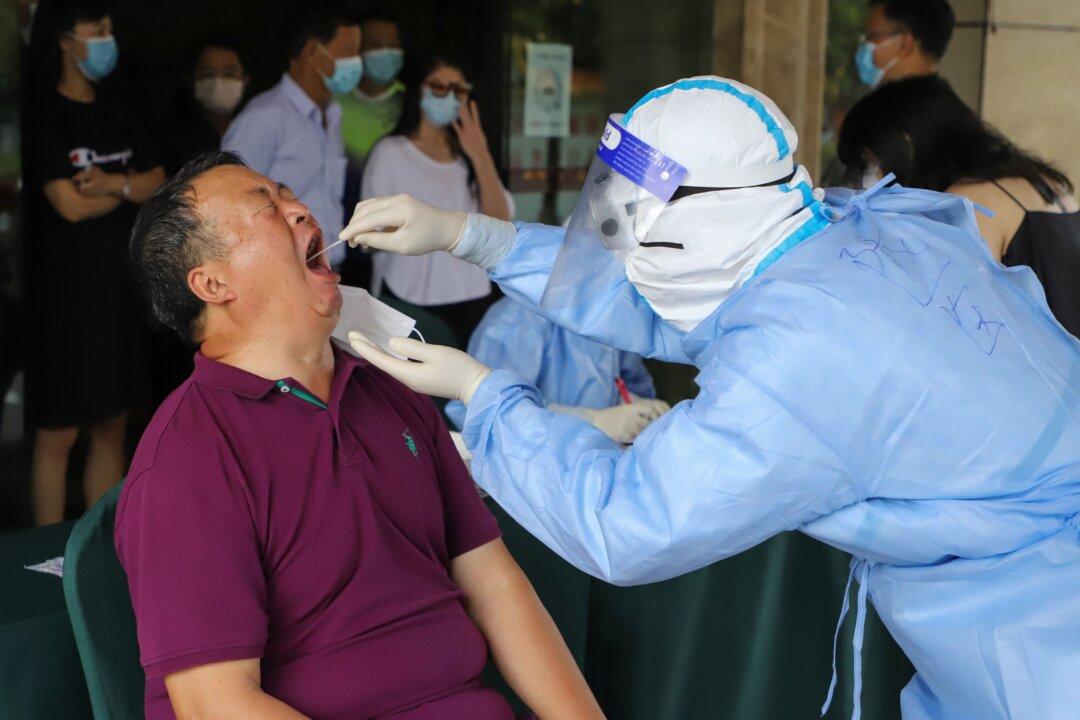Chinese authorities locked down Ruili city in southwestern Yunnan Province on Sept. 14, mandating that anyone who wants to enter or leave the city must apply for a special permit.
Yunnan governor Ruan Chengfa announced on Sept. 14 that regions that border Burma, Laos, and Vietnam have entered “wartime status” to prevent a further outbreak.





